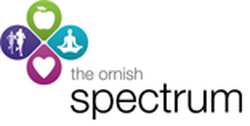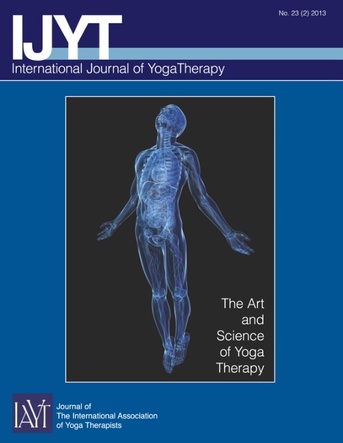 Emerging evidence is showing that yoga may be an effective intervention for children with Autism Spectrum Disorder (ASD). The Efficacy of the Get Ready to Learn yoga program on children with autism spectrum disorders study gives robust evidence that implementing a yoga program in schools is useful for many children with ASD. This study used a control group to evaluate whether the effect was due to the yoga intervention or other variables. The study also manualized the program by having students practice yoga together using DVDs of the classes. This means that each student received exactly the same classes, lending more credibility to this intervention. Interestingly, the authors of this study acknowledge Sonia Sumar, the creator of Yoga for the Special Child. Sonia mentored Anne Buckley-Reen, who created the Get Ready to Learn program. We have only discovered the tip of the iceberg when it comes to yoga's effect on kids with autism. But the momentum here is exciting! Have you seen any interesting yoga studies recently?
0 Comments
The article 7 Scientific Examples of When Yoga Is the Best Medicine by Dr. Lawrence Rosen lists the populations who seem to benefit from yoga practice, citing current research emerging from mindfulness and yoga studies. Among the groups listed were adults with cancer, children with autism, veterans and victims of abuse with PTSD, and older adults with cognitive impairments. It is so inspiring to know fellow Yoga Therapists in many of these fields. I am humbled by their service in Yoga Therapy.
I am especially excited about the research on-going on yoga's effects on children with autism. I look forward to the day when studies have examined yoga's benefits on children with a variety of special needs, on people with mental illness, and really... just about everyone. We are moving in the right direction but if we want good research, it has to be a slow process. Here's to more understanding and awareness of yoga's benefits!  Dean Ornish's Spectrum includes nutrition, stress management, fitness, and community support. These four pillars align with the yogic path. All of yoga is designed to reduce stress and culminate in mastery over the mind through meditation. A plant-based diet promotes optimal nutrition. Hatha yoga improves fitness. Karma and Jnana yoga encourage healthy relationships with others and within ourselves. Ornish's research supports the claim that practicing a yogic lifestyle improves health in people with disease. To my knowledge, it is some of the most rigorous research available on the effect of yogic practices on health. For this reason, his Spectrum program is the first to be covered by Medicare for people with heart disease. Luckily, many of Ornish's studies are available for free on his website. The study I'm excited about right now, measured telomere length in patients with prostate cancer, before and after using the Ornish Spectrum for five years. Telomeres are at the ends of chromosomes in our DNA, which protect the chromosomes from being damaged. Damaged DNA is a significant factor in developing disease. Or as the study explains, In human beings, telomere shortening is a potential prognostic marker for disease risk and progression and for premature death...Short telomere length...is associated with ageing and ageing related diseases, such as cancer, stroke, vascular dementia, cardiovascular disease, obesity, osteoporosis, and diabetes. Ornish and his research partners found that by utilizing the Spectrum program for five years, patients with prostate cancer not only halted telomere shortening, they had reversed it! Those who had followed the program had increased the length of their telomeres. A dosage effect was also apparent, as those patients who followed the program very closely had lengthened their telomeres at a faster rate than those who didn't follow as closely. This was a small study, so there is still more research needed to draw conclusions about how and why this telomere lengthening effect is being observed.
However, this is important research for the yoga community and the medical community. As Yoga Therapy looks to coordinate with the medical community, we need studies as rigorous as Ornish's. Hopefully, more studies with similar methodological rigor will document the effect yogic practices have on all sorts of populations. Ornish, D., Lin, J., Chan, J.M., et al. "Effect of comprehensive lifestyle changes of telomerase activity and telomere lenght in men with biopsy-proven low-risk prostate cancer: 5-year follow-up of a descriptive pilot study." The Lancet (2013). Published online. doi: http://dx.doi.org/10.1016/S1470-2045(13)70366-8
Children who were typically developing also displayed positive effects. With "decreased body dissatisfaction, anxiety, and negative behavior" detected.
While these are promising results, the authors note that more work has to be done before we can draw definitive conclusions. Some of the studies have methodological limitations, such as small sample size and lack of randomization or statistical rigor. Though research in yoga is emerging, we still have a long way to go in proving the many anecdotal beneficial effects we may observe in our own practices. What kinds of yoga studies would you be interested in reading about? *Serwacki, M.L., & Cook-Cottone, C. (2012). Yoga in the Schools: A Systematic Review of the Literature. International Journal of Yoga Therapy, 22, 101-109. |
Archives
July 2024
About
Just some thoughts about yoga as I go... Categories
All
|
FIVE KEYS YOGA
|
WHAT OUR CLIENTS SAYFive Keys is fantastic! The studio is lovely and soothing, and the teachers are very caring and attentive. |
I've ... probably been to 25 different yoga studios. This is one of the most welcoming, calming spaces with very talented instructors. |
I love this yoga studio. It's a great balance of a good workout and relaxation and feels like a real community. |
An ideal studio for someone new to yoga. |


 RSS Feed
RSS Feed
